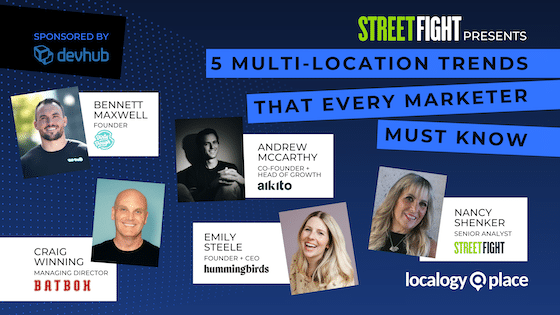Running a traditional media sales organization is a tough job in the best of circumstances.
Our latest podcast features an onstage conversation I had with Elise Balsillie, GM of sales at Yellow Australia (aka Sensis), at the recent Asiacomm ’19 conference in Vietnam. Elise is a longtime Yellow sales exec who assumed the sales leadership role in August 2018.
In our conversation, Elise described a significant evolution in how Sensis runs its sales organization.
Sensis in recent years has begun to grow its sales force after years of cuts, which Elise acknowledged went too far, and has streamlined training. The company now sends its reps out into the field after two weeks to learn on the job. Initial sales training used to last up to seven weeks.
The company also is trying to make its reps more consultative and less about product pushing. This shift is essential in today’s small business environment, where customers and more knowledgeable and have many more choices for investing their marketing resources.
Yellow still holds onto some traditional notions of selling, however. In some suburban and rural markets, for example, the ability to become engrained in the community and forge long-term relationships is seen as more effective than top-tier digital knowledge or alpha sales skills. The latter profile tends to work better in urban markets in Yellow’s view.
Here are some highlights from our conversation.
On Balancing Product Knowledge and Sales Skills
(Starting at 7:00) Yellow has dramatically reduced the size of its sales force in recent years, a trend common to traditional directory organizations that are trying to reign in sales costs as their customer base declines. Elise noted that Yellow recognizes it has taken retrenchment too far and has increased the sales force by 10% over the past year.
They have also started re-emphasizing basic sales skills after focusing heavily on digital knowledge building in the training process.
“We almost got to the point that we were making them really book smart…but we forgot about a special component, sales skills, or more than that, the art being able to have a conversation.”
In response, Yellow has invested in “sales coaches” which spread out across Australia to work with sales reps on a day-to-day basis.

On Closing Sales Offices
(Starting at 8:50) Yellow no longer operates sales offices. Many companies have made this move as part of a streamlining effort, to remove layers of management and eliminate office overhead. Elise said this also has the effect of making reps more efficient.
“Exiting the regional offices was done for many reasons, but the best thing that has come out of it is the reps are customer-facing far more than they ever were before.”
On Consultative Selling
(Starting at 9:50) Elise said Yellow has pushed hard in the past couple of years to make its selling process more consultative. This process has including de-emphasizing product in the incentive structure.
“We don’t have commissions based on product,” Elise said. “We want to build customers for life…and part of that involves having honest conversations with them.”
It also at times can mean strategically reducing an account spend if that is what truly makes sense for the customer. Yellow has invested in understanding customer personas well enough to know when it’s appropriate to grow, maintain, or even reduce spend.
“Allowing a customer to exit gracefully is really a beautiful thing,” she said, acknowledging that this is an attitude that would have been unheard of just a few years ago.
On Competition for Talent
(Starting at 14:40) Elise said Yellow has improved rep retention and success rates by merely slowing down the hiring process and taking more time and care to hire the right people. She also said that bringing recruitment in house vs. using search firms has improved the quality of sales hires.
Still, she acknowledges that there are entities that Yellow cannot compete with for top talent. These days, the stiffest competition comes from IT and SaaS.
“There are incredibly talented people available in the digital marketing ecosystem. But they can flip over and get a role at Salesforce that pays $100,000 more than we can.”
You can listen to the full episode below. We encourage you to subscribe to Above the Cloud. And please rate and review the podcast.
You can also watch the live version of this interview at Asiacomm ’19 here.





